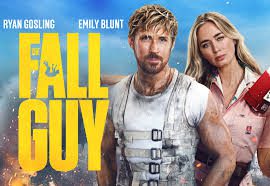John Nance Garner (one of FDR?s Vice Presidents) observed that the Vice Presidency ?is not worth a bucket of warm spit.? But that was different when Dick Cheney became Vice President. Cheney seemed to many to be the real power during George W. Bush?s presidency (at least the early years). Adam McKay?s Vice is a wide-ranging, sometimes satirical, sometimes cynical, sometimes funny, sometimes deadly serious, sometimes factual, sometimes imagined biopic of Cheney. It is by no means free of prejudice (many might call it ‘liberal spin’), but even with that understanding, it raises important questions for us to consider about how power is used by some.
The story follows Cheney (Christian Bale, in a superb performance) and his wife Lynne (Amy Adams, also great here) from his ?ne?er-do-well? or ?dirtbag? days after flunking out of Yale to being perhaps the most powerful man in the world. The terms ?power? and ?opportunity? come up frequently in the first part of the film. ?It should be noted that if we think of Cheney as the power behind the throne, this film portrays Lynne as the power behind the power. As a woman, she knew that the road to power was not open to her at that time. Instead, she formed Dick into the one through whom she would access power.

As Cheney progresses up the ladder of success, there are many of those moments that he sees as a key opportunity to enhance his power, beginning with interning with then Congressman Donald Rumsfeld (Steve Carrell), who becomes a mentor. It moves through his own congressional career and into his time in the White House and Defense Department, before heading to the private sector before he found his way to become George W. Bush?s (Sam Rockwell) Vice President. It also shows how Cheney took the opportunity (there that is again) to fill the Bush White House with his people.

McKay has put together a film that constantly surprises us. While much of the film follows the basic plot, there are some twists in the way that the story is told. For example, in one scene the Cheneys have an iambic pentameter pillow-talk discussion of the possibilities of power that would have made Shakespeare jealous. And there are times when a narrator (Jesse Plemons) breaks the fourth wall to speak directly to the audience to add some commentary or teach us about certain concepts such as Unitary Executive Theory. (The narrator?s relationship to the story is kept secret until near the end.) At one point, McKay creates a happy ending and starts rolling credits, but the film is only half done at that point. Through all this there are edited in some scenes of fly fishing (Cheney is an avid fisherman), which seem to symbolize the way he would lure people into a situation and then reel in the power. (And be sure to check out the flies that accompany the credits at the film?s end.)
So what kind of picture does this paint of Cheney (and others in the story)? Is it a political hatchet job? My thought is that for the most part the film portrays Cheney as a generally sympathetic person. He is a good family man. When his daughter comes out as gay, his response is to affirm his love for her. And before accepting to run for Veep, he makes it clear that he won?t run against LGBT rights. (Although later, when his other daughter is running for Congress, that position is set aside in the struggle to win.)

But even though he is treated sympathetically, we also see him as willing to do what is needed to achieve more power. Early on, he makes the statement that he would be a ?humble servant to power?. We never see any evidence that he serves anyone or anything other than that. (The story of the temptation of Jesus may be applicable here.)

And when we consider some of the policies that Cheney advanced, we may find that the film serves as a shibboleth that defines orthodoxy of either the right or the left, giving insight into our own understanding of what we want from our leaders. Do we want a strong leader who will never apologize for what they have done? Do we support the kinds of things done in the aftermath of 9/11? We continue to be divided on such issues. I suspect that some who watch this film will have a very different take on it than I did. I think that is especially true when we consider the final scene, as Cheney is doing a TV interview and himself breaks the fourth wall to turn to us and deliver a final aside.
As to the idea that this is a liberal political hatchet job, the film itself addresses that in a coda (another reason to stay for the credits) that explicitly makes that charge. Here too I think there is a bit of a chance for each viewer to think of their own reaction to the film and to the political situation it speaks to.





